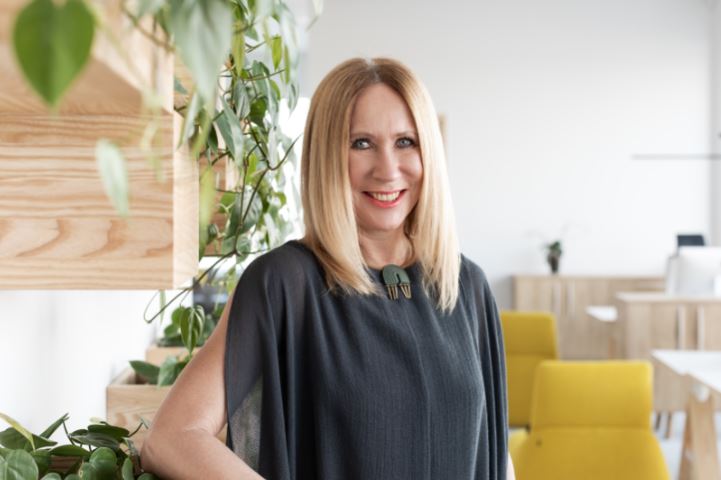Women need to be empowered not preferred, says Modularbank CEO
Vilve Vene, the woman behind start-up core banking provider Modularbank, thinks it’s high time women were celebrated because of their skills and not because of company quotas.
“Women need to be empowered, not supported or preferred,” Vene tells FinTech Futures.

Modularbank’s co-founder and CEO Vilve Vene
“They have to feel that where they are and who they are is all because of their skills, not because of quotas.”
The Estonian entrepreneur headed up Swedbank-acquired Hansabank’s IT development division back in the nineties, before co-founding four start-ups.
These include software firm RevRight, payments fintech PocoPay, banking solution provider Icefire, and Modularbank.
What is Modularbank?
Launched last year, Modularbank has acquired three clients since its fruition. One is a large financial services group in Finland, another is a Baltic retail group, whilst the third is a fintech listed on the Frankfurt Stock Exchange.
The start-up is currently advising Volkswagen’s finance division, VW Financial Services, on its digital transformation.
Built to help any company – not just banks – digitise financial services, Modularbank’s offering works a bit like lego. Firms can plug in modules for lending, buy now pay later (BNPL) solutions, and current accounts via application programme interfaces (APIs). All are independent of each other, so firms can mix and match what they want to outsource versus keep in-house.
The fintech is live in Estonia, Finland, the UK and, most recently, Germany – where ex-PayPal manager Lukas Huth heads up operations. Canada is next on the expansion list.
Despite facing more established competitors like Mambu and Solarisbank, Vene is certain there’s space for another player.
“The [BaaS] space is so big,” says Vene. “There is space for more than one or two, as each player has different approaches and customer segments.”
She adds: “We have also experienced building banking and working in a bank – some of these players can be good at the tech, but not so deep in the business.”
What is this girl doing at the table?
Back in 1992, Vene started working at neobank Hansabank. Too small to outsource its tech, the start-up’s development team – led by Vene – had to build all its banking capabilities from the ground up.
![[Photo by Kusurija, CC BY] The Baltic Way human chain in 1989](https://www.fintechfutures.com/files/2020/08/BaltskýŘetěz.jpg)
The Singing Revolution which led to Estonia’s independence
In 2001, a European Commission report found more women unemployed despite on average being more skilled than men. It also found wage differences – women earned only 75.7% of men’s net wages – and division of professions between the genders. All these factors blocked full participation of women in the labor market.
The Estonian Gender Equality Law landed as late as 2004. But in 2008 an empirical study of 301 Estonian private sector companies found only 6% of them had bothered to read the act. Even today, “biases are still very strong in Estonia”, according to Vene.
As early as 1993, Hansabank was offering its banking products to business customers. It sent Vene to meetings in the UK and Ireland, where there were “always only men around the table”.
“They looked at me, as if to say: ‘what is this girl doing here?” says Vene. “Then we’d start to discuss, and my boss would always get me to explain things.”
Whilst countries like the UK, Ireland and Estonia have got more women to the table since the nineties, there’s still a way to go.
According to 2020 Oliver Wyman research, women still make up just 20% of executive committees, and just 23% of boards.
Asked if she thinks things have changed, Vene says “not as much as it could”. “You still see c-level are mostly grey-haired men, and there are still very few ladies in start-ups too.”
Changing attitudes
At the very beginning of the nineties, Vene worked for a Swedish company. One day, she visited her boss at home to find all the domestic chores were divvied up between him and his wife.
“The Nordics has been different for years,” she says, pointing out that whilst universal attitudes must change, some cultures are a lot more forward-thinking than others.
Throughout her career, Vene has noticed that “women often underestimate their skills, whilst men often over-estimate theirs”.

“In flat organisations, it’s easier to empower women and really feel equality,” says Vene
Especially when women consider management positions, they “start to think that they have to know everything”, she says. “None of us can know everything. Instead, you have to ask questions”.
Vene also think there’s a big problem with how female entrepreneurs are depicted in the media. She references a survey in Estonia, which looked at how the media writes up interviews with female entrepreneurs.
“The first point is always ‘she’s extremely hard working’ – not simply ‘she’s talented’,” Vene points out.
“Then it goes into her routine – ‘she wakes up at six, makes breakfast for the family, does the school run, works, then gets back to childcare again in the evening and is asleep by midnight. You’ll never read articles like that about male entrepreneurs.”
Vene has two daughters, one of whom studied IT at university. Her lecturer was taken aback by the number of women in his class, prompting him to say: “Some of you can become analysts, but engineering? Forget it.”
It’s this attitude to skills and gender which shapes – often negatively – many women’s opinions of their own capabilities.
At Modularbank, Vene has tried to curb some of these attitudes by keeping her organization flat, rather than hierarchical like banks.
“In flat organisations, it’s easier to empower women and really feel equality,” says Vene. Modularbank has around 30 employees, which led Vene to draw up an organisation chart.
“It can get inefficient when people lose sight of responsibilities, but that doesn’t have to lead to hierarchy,” she says.
Read next: How to shift gender balance in fintech











































